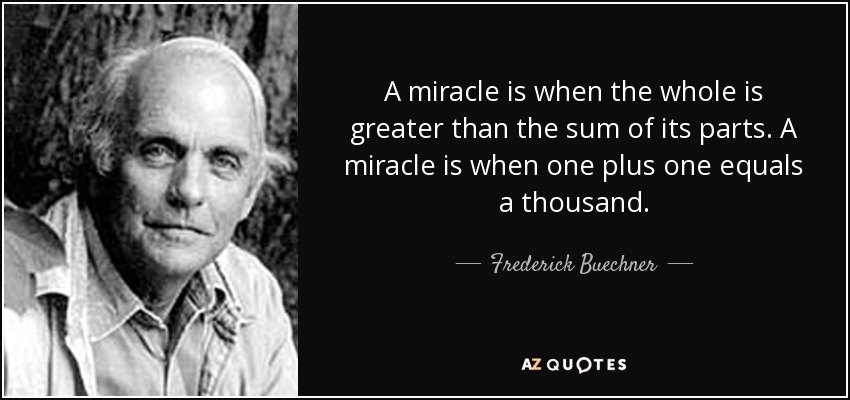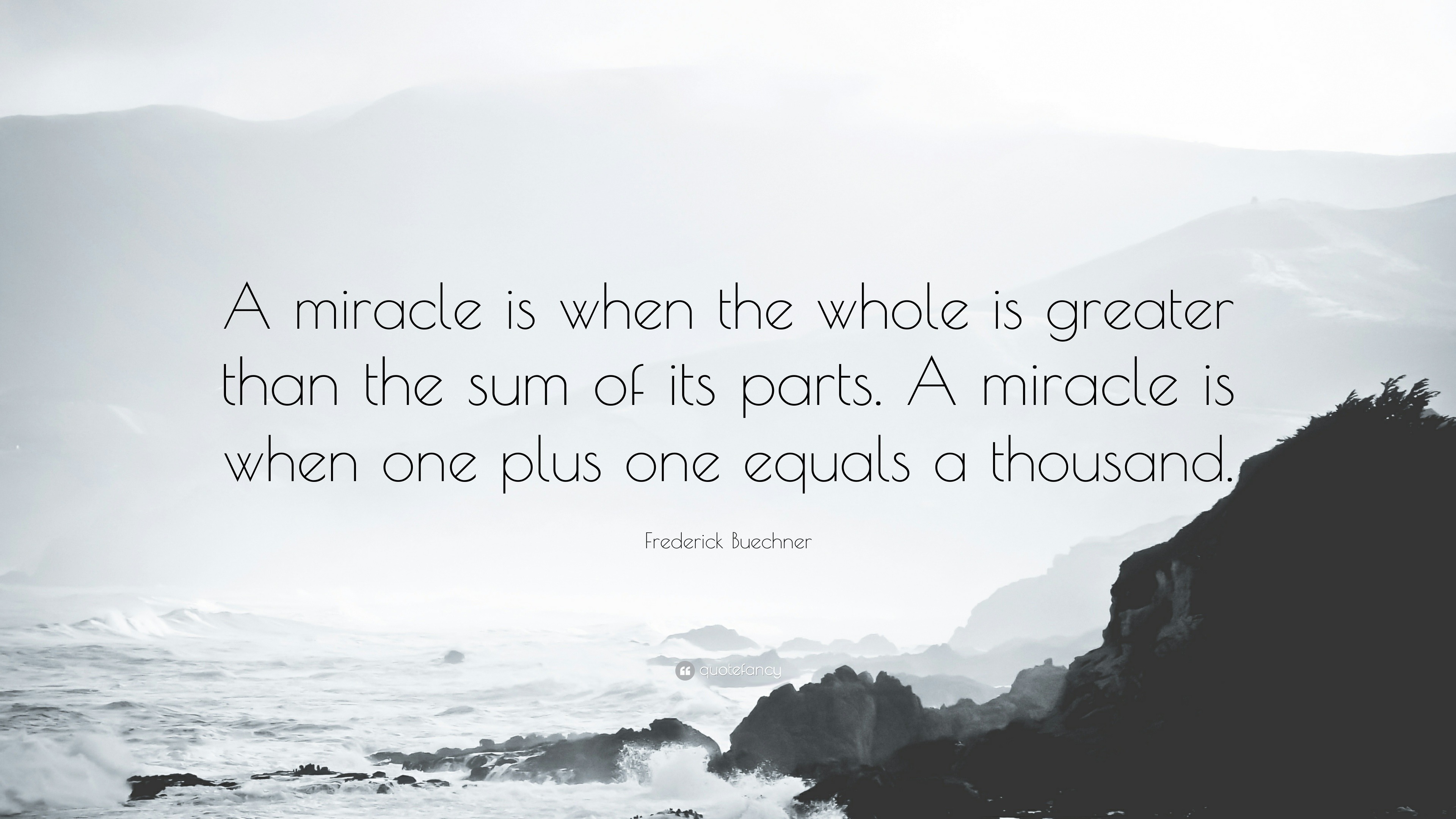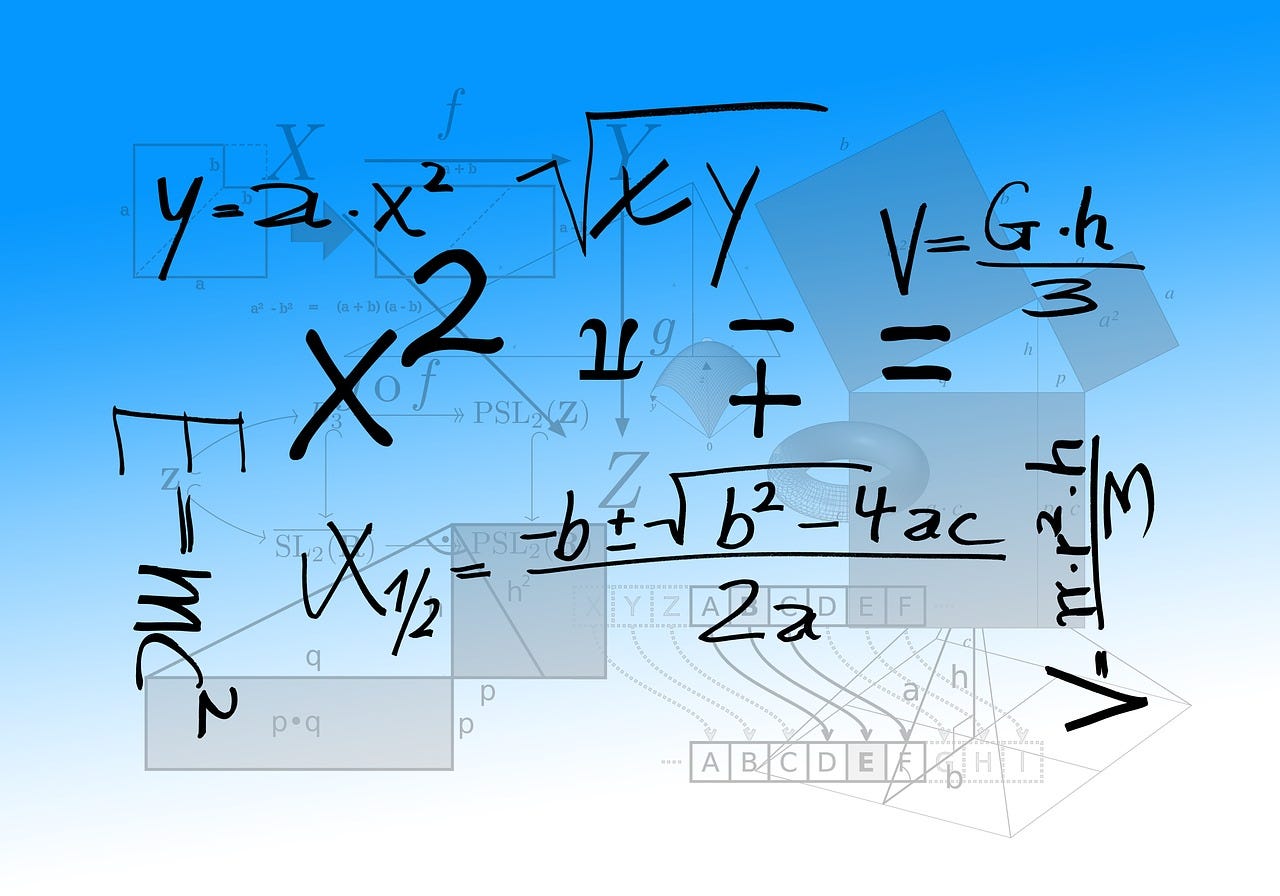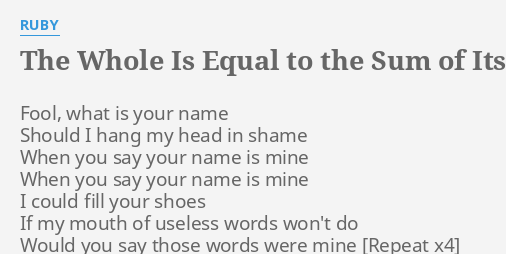The Whole Is Equal To The Sum Of Its Parts
The whole is equal to the sum of its parts. Your brain is connected to your spinal cord and to your network of arteries and veins and its the interaction between these parts that gives rise to the ability to do things like ask questions on Quora. Substitution Postulate A quantity may be substituted for its equal in any expression. The whole equals the sum of its parts and the related statement that Any one part equals the whole minus the sum of the other the other parts.
A phrase attributed to Aristotle and misquoted by those seeking to understand one of the most mysterious properties of a system. Division Postulate If equal quantities are divided by equal nonzero quantities the quotients are equal. Reflexive Property A quantity is congruent equal to itself.
In other words affirming that the whole is equal to the sum total of its parts If the known parts are not equal we subtract. As a result it can seem that the whole is greater than. In theories of proximity the whole is equal to the sum.
The original famous phrase of Gestalt psychologist Kurt Koffka The whole is other than the sum of the parts is often incorrectly translated4 as The whole is greater than the sum of its parts and thus used when explaining gestalt theory and further incorrectly applied to systems theory5 Koffka did not like the translation. His logic was that the sums are greater by themselves than they are with a whole. Psychological Gestalt theory would maintain that the whole is something else or something different than the sum of its parts.
The whole is equal to the sum of its parts. Murray can be interpreted in many ways. Read my exploration into that topic The phrase is also used to explain the importance of Synergy and the foundations of Gestalt theory.
Mathematically speaking the whole always equals the sum of its parts. A probabilistic model of grouping by proximity and similarity in regular patterns. The converse of this quote The whole is greater than the sum of its parts is what I believe is true in the case of teamwork.
Mathematically the whole is equal to the sum of its parts neither more nor less. Basically Each individual part is equal to the whole minus all of the other parts.
Law of Conservation of Weight HELP PLEASE ILL GIVE YOU BRAINLIEST OR WHATEVER AND LIKE 30 POINTS JUST PLEASE ANSWER ME.
The whole is not the same as the parts By τὰ μέρη I mean the parts taken together here eg. The original famous phrase of Gestalt psychologist Kurt Koffka The whole is other than the sum of the parts is often incorrectly translated4 as The whole is greater than the sum of its parts and thus used when explaining gestalt theory and further incorrectly applied to systems theory5 Koffka did not like the translation. If the known parts are equal we divide. The second aspect of wholes and parts supported by Mathnasium curriculum is complements. The whole is greater than the sum of its parts When viewing a situation or a problem or challenge its always good to firstly step back by taking a helicopter view or a gestalt perspective of it. The whole is equal to the sum of its parts. In general when its true that the whole is greater than the sum of its parts its because theres some kind of connection or interaction between the parts that adds to the sum. Basically Each individual part is equal to the whole minus all of the other parts. The whole equals the sum of its parts For at least a century we have acted as if the uncollected major fragments of our knowledge which we call disciplines could by themselves give understanding of the emergent ideas that come from putting the concepts and results together.
This phrase a favorite of Dr. The teams goals have to be the. Mathematically the whole is equal to the sum. Division Postulate If equal quantities are divided by equal nonzero quantities the quotients are equal. Partition Postulate The whole is equal to the sum of its parts. The authors investigated whether the gestalt grouping principles can be quantified and whether the conjoint effects of two grouping principles operating at the same time on the same stimuli differ from the sum of their. Provided to YouTube by Sony Music EntertainmentThe Whole Is Equal to the Sum of Its Parts RubySalt peter 1995 Creation Records LimitedReleased on.






















:format(webp):mode_rgb():quality(90)/discogs-images/R-15433692-1591456621-9998.jpeg.jpg)



















Post a Comment for "The Whole Is Equal To The Sum Of Its Parts"